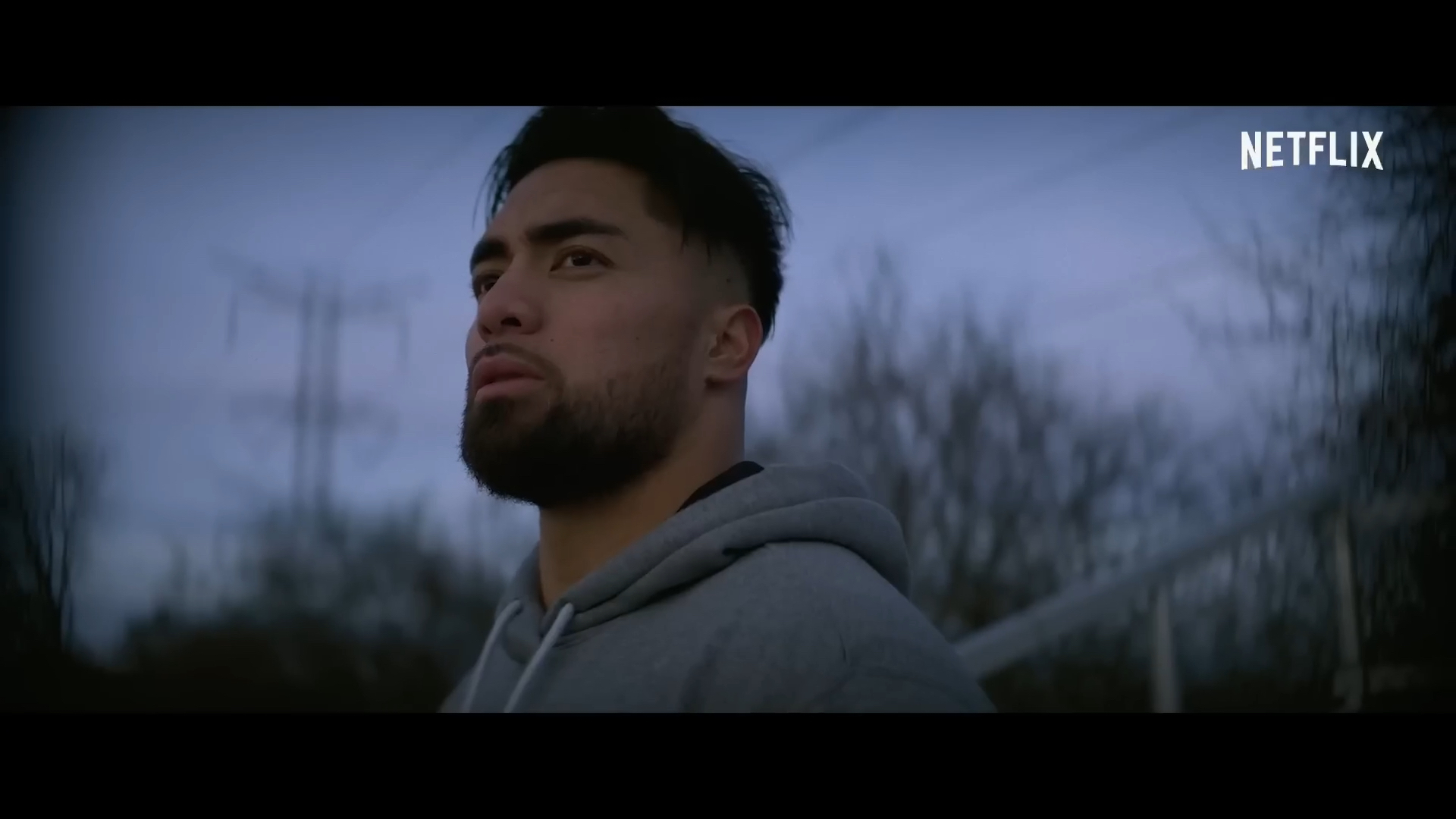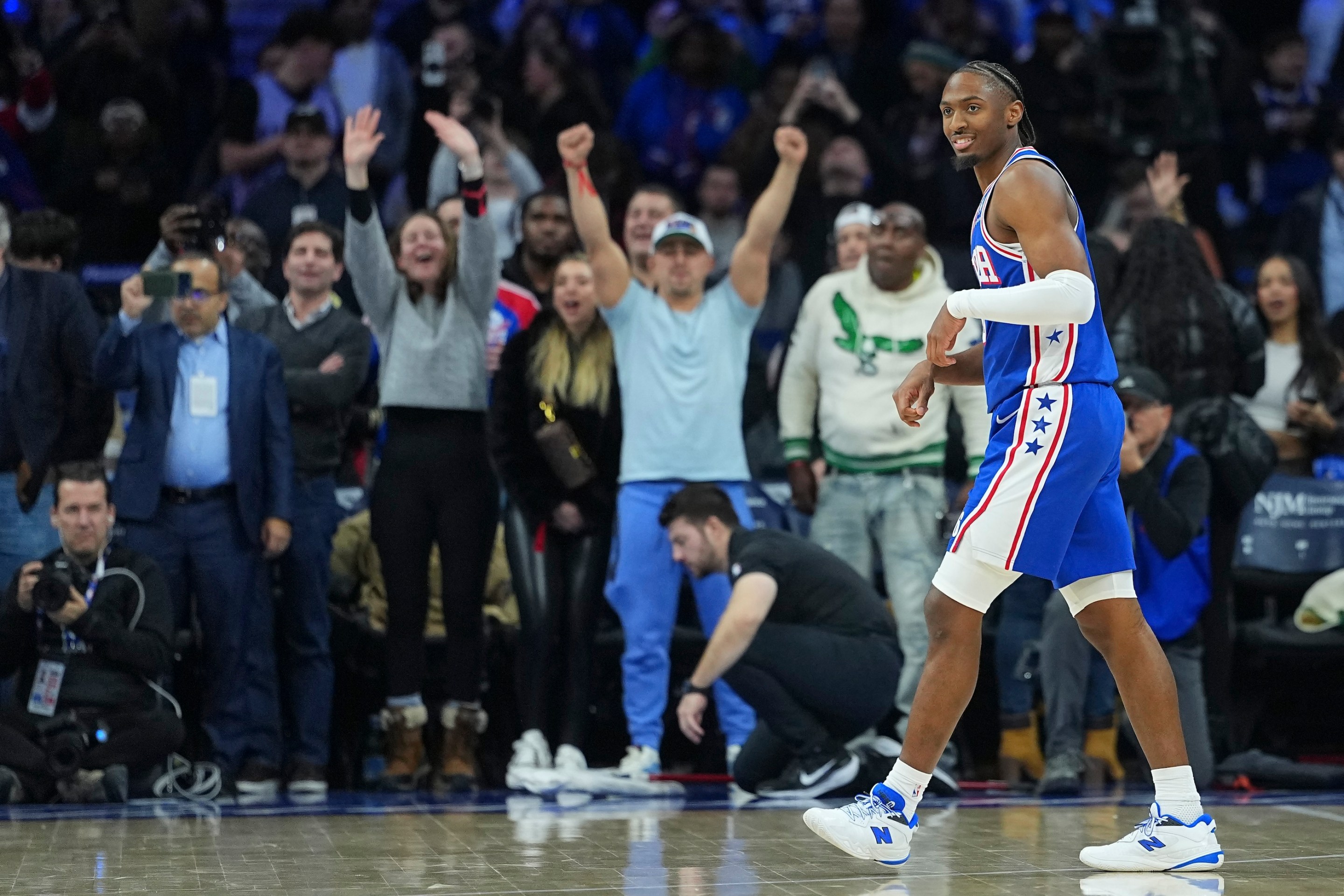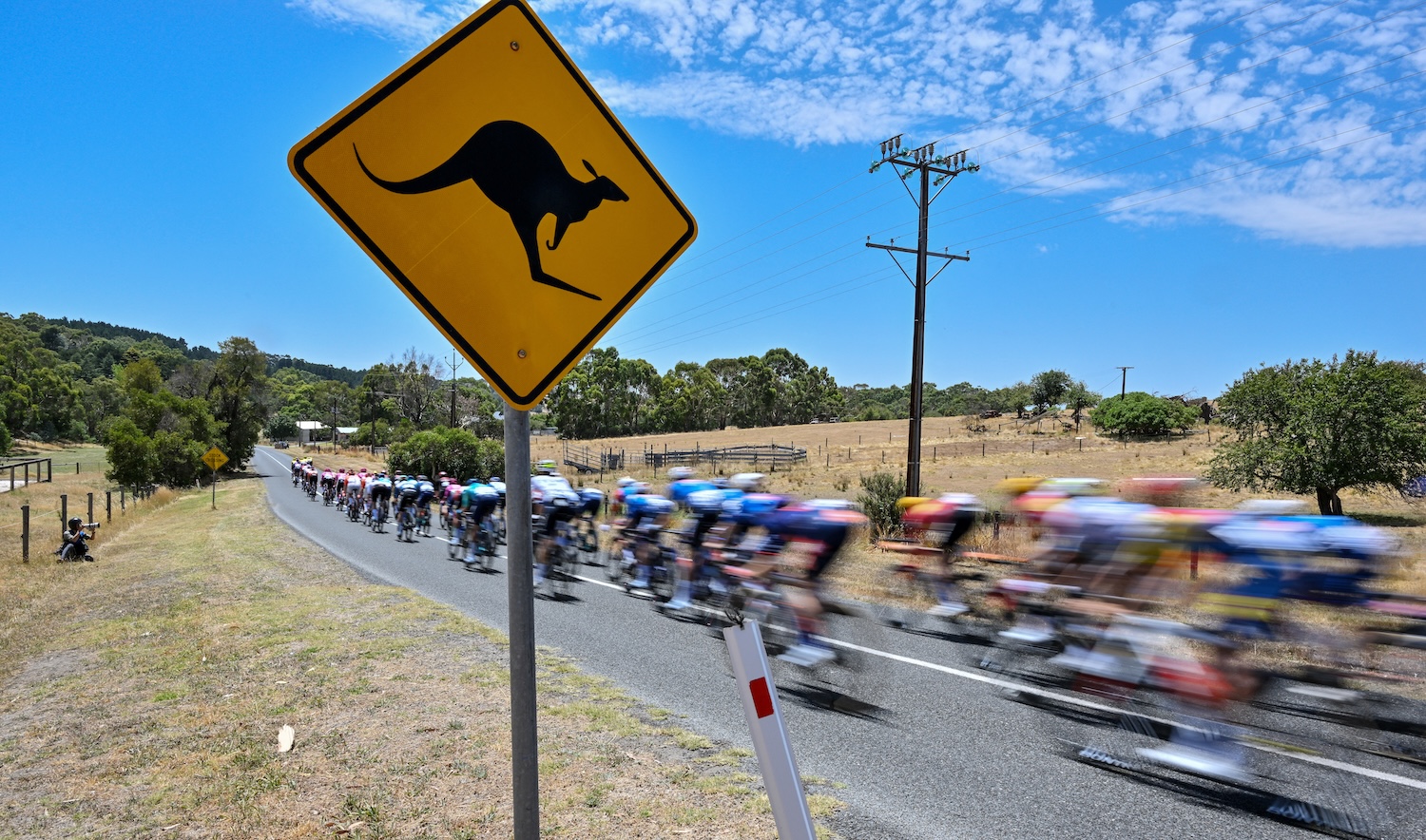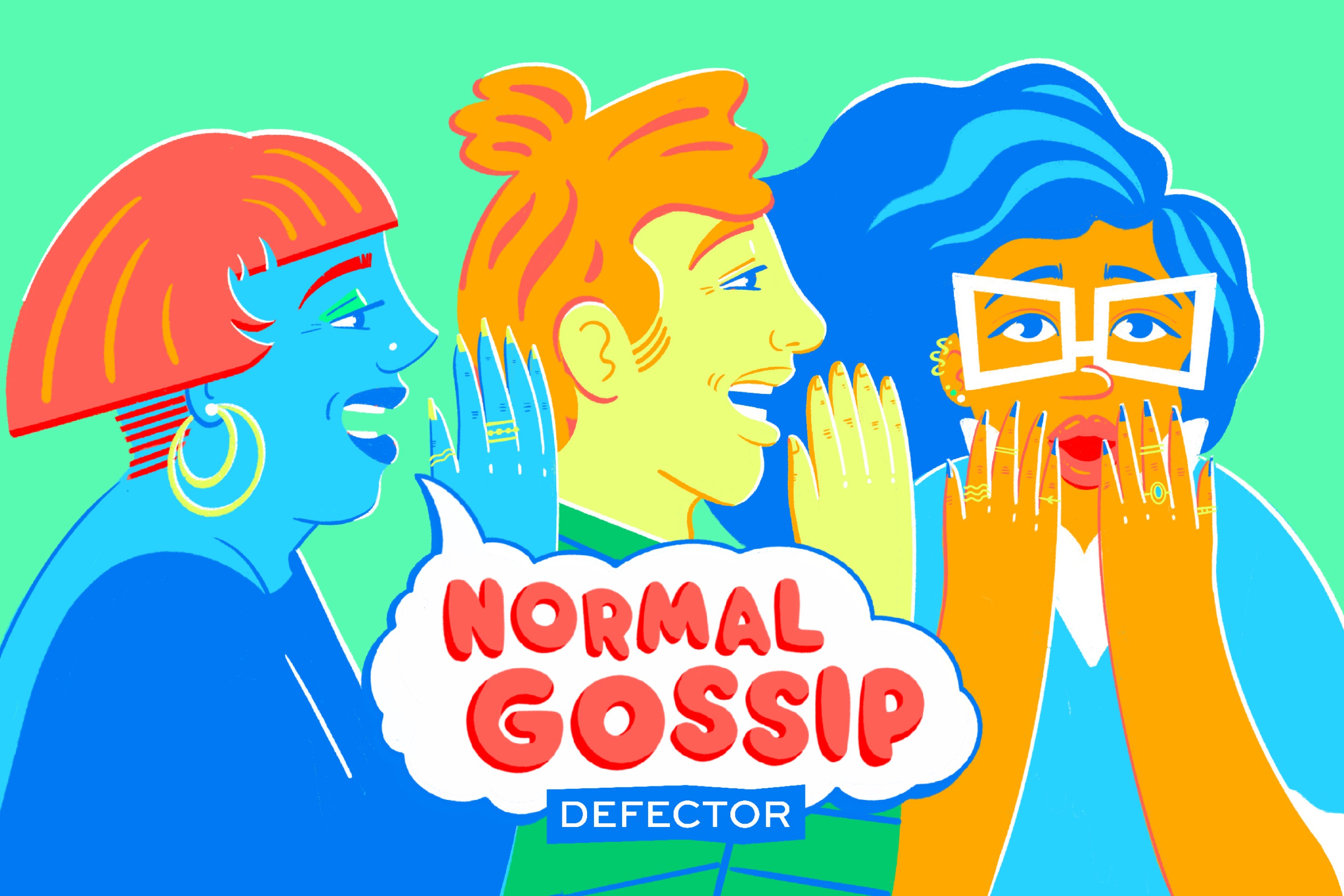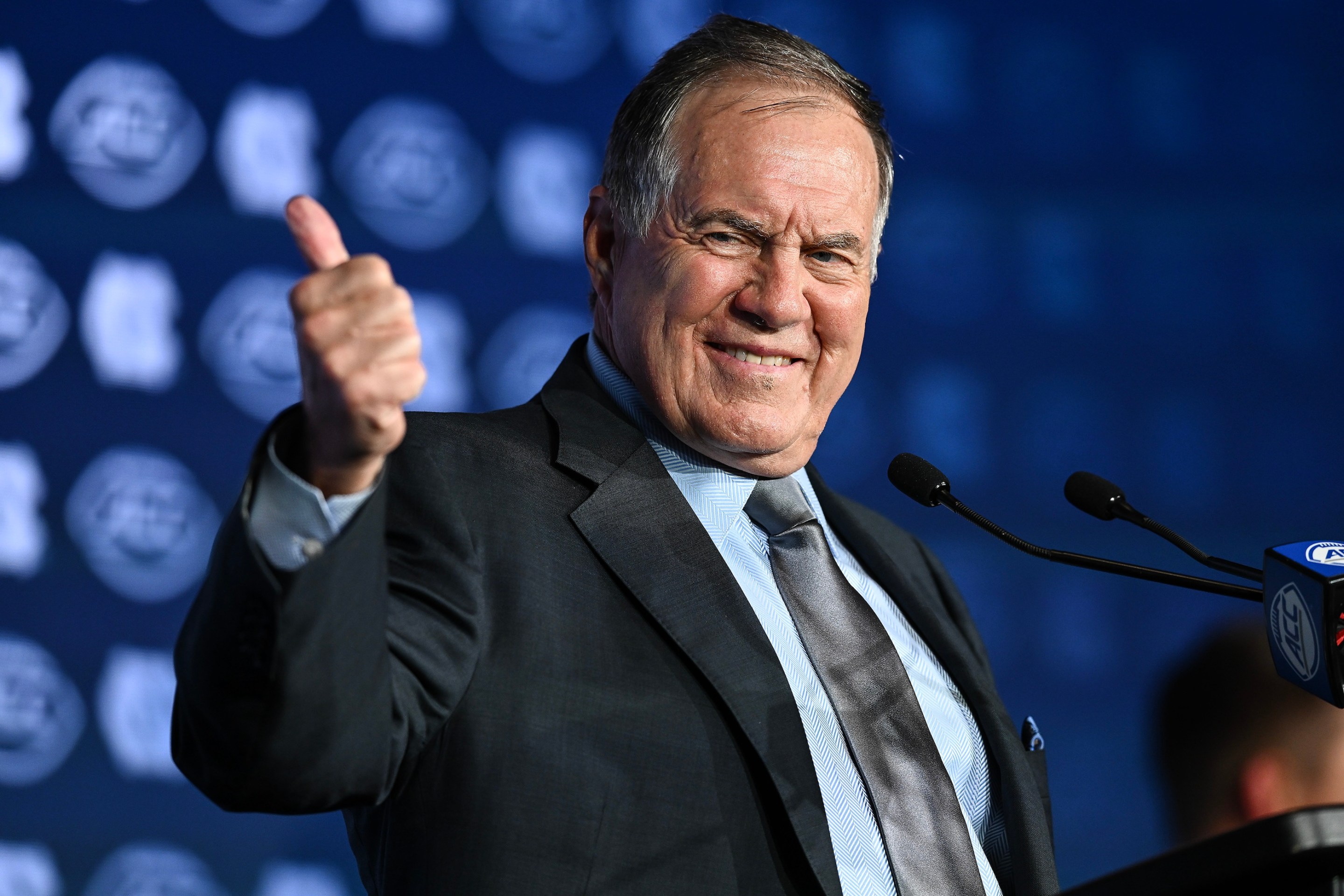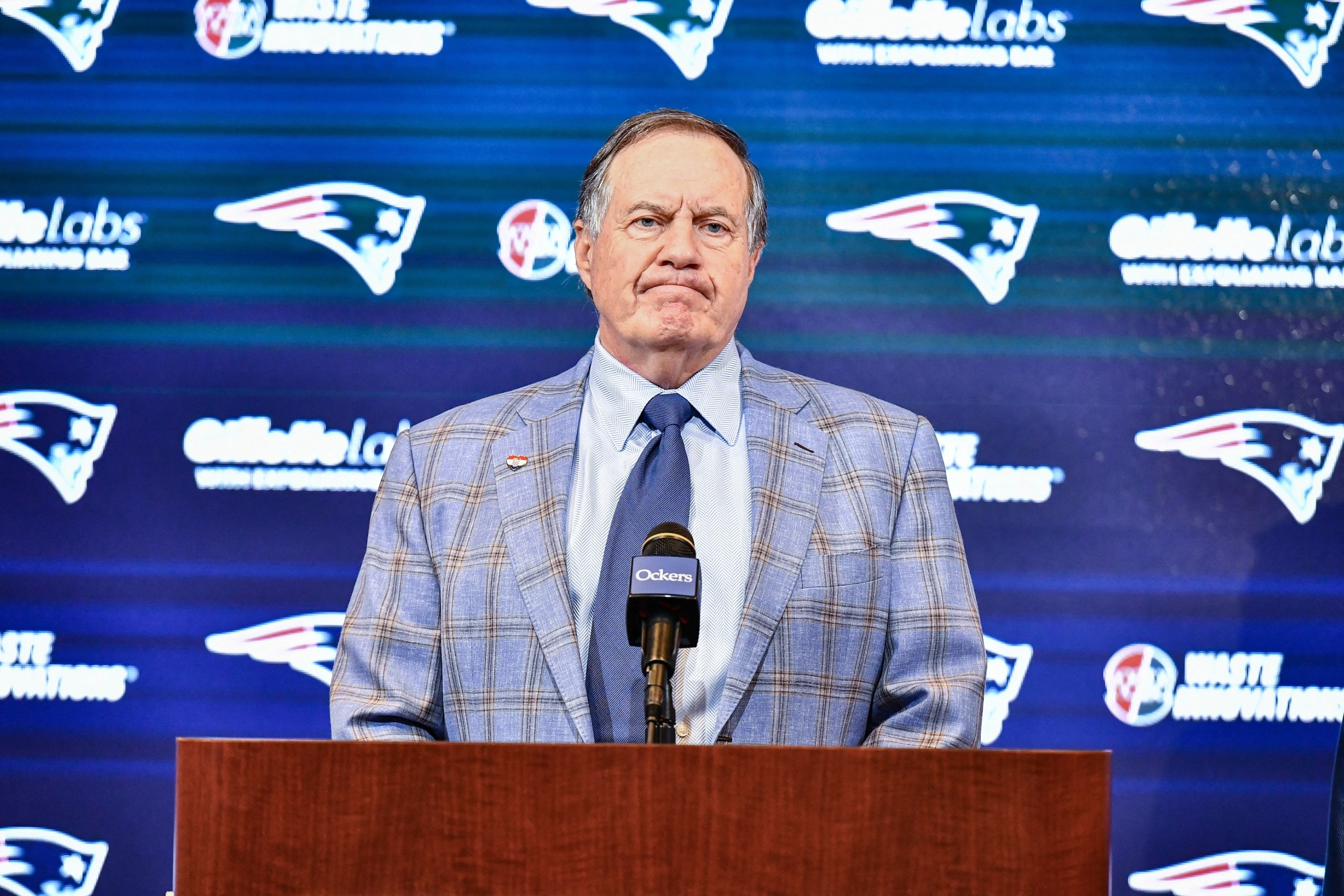The value of Untold: The Girlfriend Who Didn't Exist, released on Netflix in August, can be found in the access. There’s a pattern with streaming-service documentaries in which they tend to be rushed out—either due to timeliness or competition from other platforms—rehash the existing reporting, and add little else. This edition of Untold feels more intentional and productive, because until now the two principals, Manti Te’o and Naya Tuiasosopo, haven’t thoroughly discussed what happened since they left the news cycle.
For those who aren’t familiar: Te’o was a highly touted linebacker for Notre Dame and a top NFL prospect going into his senior season. Then, on Sept. 12, 2012, he received some terrible news: His grandmother Annette Santiago and girlfriend Lennay Kekua had both died within hours of each other. Facing these two tragedies, Te’o chose not to miss any games to fulfill a promise to Kekua; his resilience transcended the world of sports and became a national human-interest story. That year, people who knew nothing about college football still knew who Manti Te’o was because of what he had gone through. Notre Dame went 12-0 and reached the National Championship Game in January 2013, where they were blown out by Alabama. (Because of NCAA sanctions, those wins were later vacated due to Notre Dame’s use of ineligible players, but no one besides the NCAA really cares about that.) Roughly a week after the Fighting Irish’s championship loss, Deadspin’s Jack Dickey and Tim Burke reported that Lennay Kekua didn't exist. There was no record of her death or existence outside of being Te’o’s girlfriend. She was the creation of Ronaiah “Naya” Tuiasosopo, a football player from Hawaii who had catfished Te’o along with other men.
(Also, for those who aren’t familiar, a disclosure: I interned at Deadspin in the fall of 2012 and began working there in the summer of 2013 up until late 2019. Although I did work with Burke and Dickey, I wasn’t there for their reporting of the Manti Te’o story. Separately, in 2014 I talked to Ryan Duffy, one of the directors of Untold, about joining Vice Sports, but it didn’t end up working out. We haven’t been in touch since then, so this disclosure is less relevant, but I figured all the cards should be on the table.)
A lot has changed since Lennay Kekua ceased to exist. Te’o played in the NFL until 2021 and is currently a free agent. He’s married to fitness instructor Jovi Nicole Te’o and has a child, with a second one on the way. After Tuiasosopo was revealed to be the catfish and made the rounds on TV, she took a trip to American Samoa and found the faʻafafine community, a group of Samoans who identify as a third gender. The documentary shows that she came out as a trans woman and lives in Washington, working at a hardware store. Both Te’o and Tuiasosopo, for different reasons, used the years to return to some kind of normalcy.
The influence of the Players’ Tribune is heavy in this project, which makes sense, since the company co-produces the Untold series. If every line of Te’o speaking were stitched together, it would track with one of the written essays done with athletes like JaMarcus Russell or Dion Waiters. For a documentary, though, it helps to have other participants to fill out the story and provide other perspectives. Aside from Te’o and Tuiasosopo, there are interviews with Te’o’s family and friends, Notre Dame athletic director Jack Swarbrick, Dickey, Burke, and one brief appearance from Dr. Phil, whose presence does little to enhance the archived footage of his show.
The influence of the Players’ Tribune also has its limitations. Surely it took a lot of patience and persuasion to get Te’o and Tuisasosopo on board for this, and the documentary is better for it: They offer detailed insight into their respective roles as victim and catfish. But there are some parts where you’d expect the directors to go further, and for one reason or another, they don’t. The few minutes dedicated to Dr. Phil would’ve been better spent getting more answers from Swarbrick. What did Notre Dame do between the day Te’o informed the school of the catfishing, on Dec. 26, 2012, and Jan. 16, 2013, the day of the Deadspin report? Swarbrick says that the school’s “outside consultants” advised that “we don’t need to say anything publicly right now, but we do need to find out what happened and be very, very careful.” When asked about the day the news broke, Swarbrick says, “We were engaged in conversations with Manti about, ‘This has to be talked about. What’s the plan?’ Manti was working on revealing the story.”
Swarbrick presents a convenient narrative without pinning down any specifics, presenting himself as an advisor to Te’o and not the athletic director of one of the most renowned schools in the country. A sympathetic person can accept why Manti Te’o—a football player ambivalent about attending Notre Dame over his preferred USC, an obedient college student far from home and scrambling to adapt to a new environment, a victim of repeated emotional manipulation—struggles to explain why he kept saying his girlfriend was dead even though he received a call days before the Heisman ceremony, from Tuiasosopo, claiming that Lennay Kekua was alive. “I don’t know what to think. I don’t know what to do,” Te’o says. “Like, ‘What’s true? What’s not true?’ And I can’t tell anybody what’s going on. I mean, what would you think? So I just stuck to the script.”
More than once in the documentary, Te’o can’t provide an answer beyond Everything was crazy at that moment, I was just following advice. That explanation is less believable when coming from the people who dispensed advice to him. Even if catfishing was considered a novel phenomenon at the time, Swarbrick and Manti’s father Brian Te’o both knew enough in early January to discern that the facts of Lennay Kekua, repeated throughout the season, were bunk. Notre Dame’s platoon of investigators and consultants somehow couldn’t find the connection between Tuiasosopo and Lennay Kekua, even though it had become something of an open secret in Hawaii, as Untold illustrates. Surely the school knew that ESPN was working on its own investigation and trying to get Manti for an exclusive interview, with very specific conditions from the linebacker’s camp. From a New York Times report on Jan. 22, 2013:
Doubts endured and mysteries seemed to multiply despite those interviews. And ESPN still wanted an on-camera interview with Te’o, and one of its veteran reporters, Jeremy Schaap, was in pursuit of it.
But Matthew Hiltzik, a public-relations adviser to Te’o, adamantly set a critical condition with Schaap. ESPN could interview Te’o off the air last Friday night only, in an intimate setting without cameras or a group of technicians. [News chief Vince] Doria said that ESPN was also limited to using two minutes of audio.
[...]
After a two-and-a-half-hour interview at the IMG Academy in Bradenton, Fla., Schaap started delivering reports early Saturday morning after an overtime N.B.A. game. Instead of video, Schaap quoted and paraphrased Te’o’s comments. He described Te’o’s body language and expressed his view that he believed Te’o’s sometimes nearly impossible-to-follow tale: he had engaged in an exclusive online and telephone relationship with Kekua, who he believed was real but had never met; he had misled his own family about the nature of their relationship, in part out of embarrassment; and he had tailored his remarks in news media interviews to suggest that the relationship was more substantial than it was.
The desire to control the narrative to the finest detail turned out to blow up in the face of multiple parties. Deadspin broke the news first with what it knew at the time. Given its status in sports media, the site was never going to get a sitdown interview with Manti Te’o; he, Tuiasosopo, and Brian Te’o say in Untold that they received calls for comment and ignored them. Swarbrick called a presser hours after Deadspin’s report and shared the findings of the school’s investigation, allowing him to hand off the responsibility to the outgoing student. Te’o’s advisors had him put out a statement and go on Katie Couric’s show to talk about how he wasn’t gay. Tuiasosopo showed up on Dr. Phil’s show and demonstrated the Lennay Kekua voice for supposed experts. Many media outlets that had written about the tragedy of Lennay Kekua had to go back and see where they went wrong. The feel-good story that swept the nation did so again as a farce, leading to humiliation and anxiety for Te’o and ostracism for Tuiasosopo.
Untold concludes with a moving speech from Te’o about how he forgave Tuiasosopo, but also himself. Beyond that, the ending felt abrupt and deliberately vague. The second part of the documentary plays up his NFL-draft day slide, from the middle of the first round to early in the second round, and leads the audience to believe his career was a tragic failure. In reality, it was totally respectable. He was on an NFL roster for eight seasons. The Chargers named him as a captain in 2016, even though talking heads in 2013 couldn’t imagine anyone in the locker room following that guy on the field. The more significant setback in his pro career was the torn Achilles he suffered that season, which hampered his play afterward.
I can understand why the directors did this: The narrative—I don’t use that word disparagingly—was of a tragedy, emerging from a tragedy that didn’t happen. But all these years later, Te’o’s life doesn’t come off as a tragedy. He certainly doesn’t see it as one, anyway. Untold and the Players’ Tribune allowed Te’o to regain some dignity by presenting it in that light, which was only possible with his participation. It was limited in what it would reveal. Deadspin’s version, without access, was limited in what it could reveal. Together they overlap and create an updated story: After serving as an inspiration for persevering in the wake of his dead girlfriend, Manti Te'o has become an inspiration for persevering in the wake of his imaginary dead girlfriend.
